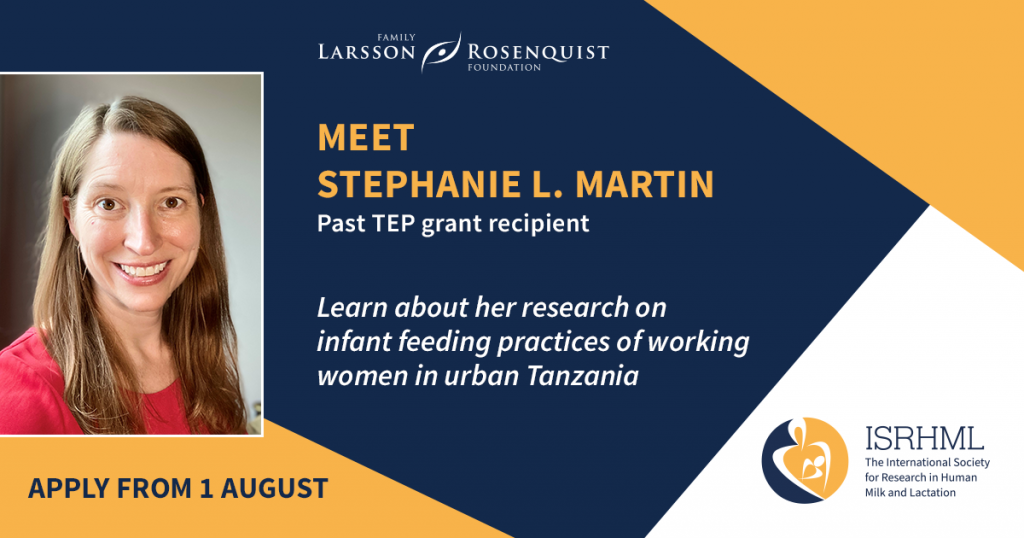
Past TEP grant recipient Stephanie L. Martin, PhD, currently an assistant professor in the department of nutrition at the Gillings School of Global Public Health at the University of North Carolina in the United States, received a Trainee Bridge Fund (TBF) grant in 2018. The grant enabled Dr. Martin to travel to travel to Moshi, Tanzania, to collaborate with faculty from Kilimanjaro Christian Medical University College.
During her work in Tanzania, Dr. Martin had the opportunity to serve as the principal investigator in a study of infant feeding practices of women working in the informal sector in Moshi. The experience taught her about the importance of building relationships and managing research.
About her experience, Dr. Martin said:
“The TEP grant allowed me to expand my research to focus on exclusive breastfeeding and lactation. I am so grateful for the opportunity to examine this topic and develop new collaborations. I now have several studies focused on breastfeeding and lactation research. We plan to build on our findings from this research to pursue additional funding, which would not have been possible without the TEP grant.”
Dr. Martin and her collaborators have presented their findings at conferences this year and are preparing manuscripts for publication. Dr. Martin presented her work at the American Society for Nutrition’s annual meeting Nutrition 2021 and her collaborator, Melina Mgongo from KCMUCo, just presented findings at the ISRHML conference.
(Link: https://academic.oup.com/cdn/article/5/Supplement_2/781/6293060)
Q1: What is your current research area?
My research focuses on the design, implementation, and evaluation of behavioral interventions to improve maternal and child nutrition, including infant feeding. My TEP-funded research focused on infant feeding practices of women who work in the informal sector in urban Tanzania.Q2: How has the TEP grant impacted your research?
It allowed me to establish a new research collaboration with faculty from Kilimanjaro Christian Medical University College and supported our research to examine the experiences of infant feeding among women working in the informal sector in Moshi, Tanzania. It also highlights the importance of working with wonderful partners, my collaborators from KCMUCo have been so wonderful to work with throughout this project.Q3: What new skills have you developed as a result of your TEP grant experience? What existing skills have you enhanced?
This was the first study where I was the PI of a study. I learned a tremendous amount about building relationships, managing research, and working on a project from proposal development through dissemination. It provided an opportunity to enhance my communication skills and gave me opportunities to strengthen my mentoring skills since several undergraduate and graduate students have participated in different phases of this study.Q4: Can you express what the TEP grant means to you and your research?
The TEP grant allowed me to expand my research to focus on exclusive breastfeeding and lactation, since most of my research had previously focused on complementary feeding and maternal nutrition. I am so grateful for this funding and the opportunity to examine this topic and develop new collaborations. I have been able to build on what I have learned and now have several studies focused on breastfeeding and lactation research. We plan to build on our findings from this research to pursue additional funding, which would not have been possible without the TEP grant.Q5: What piece of advice would you give a TEP grant applicant?
I would encourage people who are not successful the first time to resubmit. The first year I applied I was not successful, but I made revisions based on reviewer feedback and was successful the second time. Also, work with your mentors during the proposal development phase, their guidance can be so helpful.